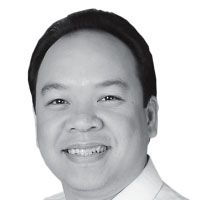Dual in the sun

There was a big to-do recently about our own Ms. Yuka Saso, youngest US Women’s Open Golf Champion in history, and her upcoming citizenship “moment of truth.” She is touted to be our best hope for a 1st Gold medal ever in the summer Olympic games. For now, she is all Filipina. But for how long?
Yuka was born to a Filipina mother and a Japanese father. Hence, under Philippine law, she is both Filipina and Japanese. She can stay that way for life unless and until she decides to renounce one or the other. Under Japanese law, however, her situation is different. A subject who gains a second citizenship is “encouraged” to decide whether to retain the same upon reaching the age of 22. After that, only by giving up the second citizenship may one keep his/her Japanese citizenship.
The sporting world is not new to this phenomenon. Among others, there is the curious case of Naomi Osaka. The celebrated Japanese-American tennis champion (putative world No. 1) faced that same choice. Naomi is reported to have surrendered her US citizenship in order to stay Japanese.
The mirror has two faces. Today, more and more people are dual nationals. In a matter of years, it may even become the norm. Worldwide, from a low of 1/3 of all countries in the 1960s that allowed a second nationality, the proportion has increased to 3/4 today, according to CNN. Asia, though, has bucked the trend. Led by Japan and China, the region has tilted toward stricter nationality policies.
The matter of dual nationalities has always been contentious. The usual cassus belli is allegiance. Martial countries have a special interest in insuring only undivided loyalties, particularly during times of war. Another context we are seeing is in times of pandemic. Who is in and who is out in terms of entitlement to a home country’s privileges and protection?
Sport is another quintessential stage, especially in international competitions. The Olympic games are just around the corner. For the Philippines, the diaspora has been a key element in emergent identity issues. Transborder migration spawns solidarity with citizens even across territorial limits.
Among our Olympians, we have Filipina-Japanese Yuka Saso and Kiyomi Watanabe (judo). In track and swimming, Filipina-Americans Christina Knott and Remedy Rule; Filipino-New Zealander Luke Gebbie.
Outright birthright. We speak of dual citizens who are so by birth. If only one parent is Filipino, they simultaneously acquire citizenship of the foreign parent (jus sanguinis). If born outside to Filipino parents and the country confers citizenship by place of birth (jus soli), then the second citizenship. Philippine law is clear that these classes are dual citizens already. They need not take the extra step of applying to be a dual citizen under Republic Act 9225, the Citizenship Retention and Reacquisition Act.
The contentious application of dual citizenship interdictions come, among others, when you decide to run for public office. There is no dearth of election cases on naturalized citizens repatriating to their original Filipino citizenship or those involving dual citizens by birth, whether running for national or local elective positions. The rule is clear: dual citizens are not disqualified from filing their certificates of candidacy. However, they must show proof of renunciation of any other citizenship they hold.
Not immutable. The classical formulation of a national conception of citizenship has become the subject of major critical scholarship. We are realizing that there are several perspectives to citizenship, not all embedded in the notion that it is a straight up function of the nation you were born in or the parents you were born to. The Harvard Research in International Law (1929) introductory comment to the draft convention on the law of nationality posited that Nationality does not have an immutable meaning. “Its meaning and import have changed with the changing character of states it may acquire new meaning in the future as the result of further changes in the character of human society and developments in international organization.”
Globalization and the continuing transformations that it brings about have untold implications on the institution of citizenship and carry effects that dilute citizen loyalty to the state as we know it. There has even been significant commentary on the giant transnational corporations like Facebook, Amazon, Google et. al. and their leverage to affect citizenship issues. Because of their size and stature, these and other technology giants have been alternately hailed as net states. Columbia University professor Alexis Wichowski has noted how they’ve gone beyond their core technological expertise and entered spheres traditionally dominated by governments. Their financial capacity matches if not surpasses nation-states and they possess a well of social capital. This is an interesting topic for extended discourse but for another day.
Ultimately, the resistance to dual nationality for being inconsistent with the absolute authority of the State over its nationals should relax to where dual status has no perceived diminution on a nationality’s value.
From duals to duels. On the subject of duels, there is a key takeaway I’ve taken to heart from the results of all elections I’ve participated in since I was old enough to vote in 1984 (Batasang Pambansa elections). In a duel, anyone can win.
In Manila, five of six opposition assemblymen candidates upset the administration KBL stalwarts in a turning point under Martial Law. In the 1986, 1992, 1998, 2010 and 2016 presidential elections, the candidate supported by the administration did not win. 2004 was an exception as the candidate was the incumbent.
Anyone can win. We should bear this in mind as we weigh the relative pros and cons of each contender for the more than 18,000 elective positions at stake in 2022.
Glossary. Hygiene theater – cleaning practices which give the illusion of sanitization without reducing the risk of infection (Oxford Languages); Security theater refers to security measures that make people feel more secure without doing anything to actually improve their security (Bruce Schneier, security expert).
- Latest
- Trending

























